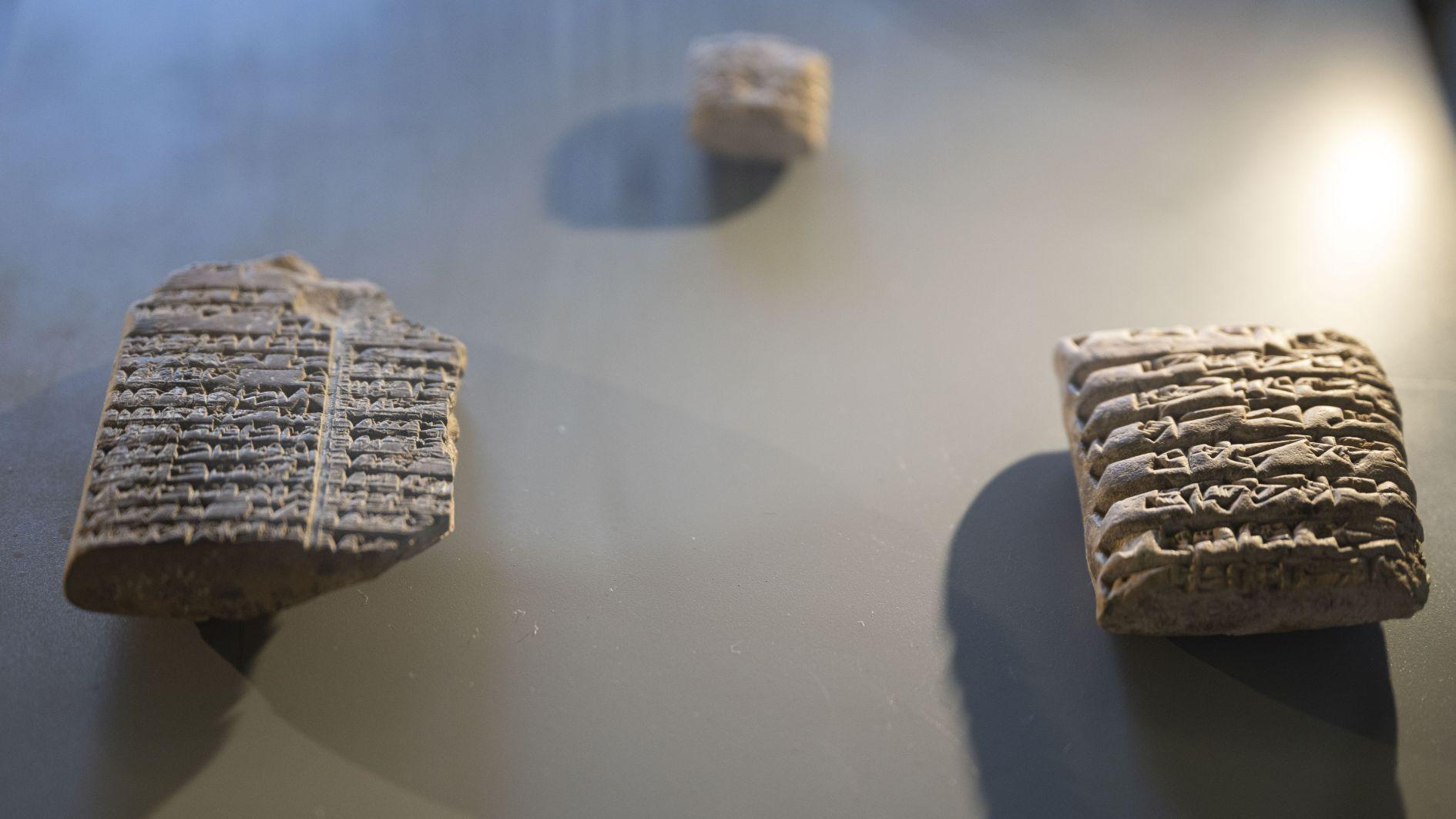
In line with its efforts to protect cultural heritage and combat smuggling, Türkiye returned six clay tablets inscribed with cuneiform script to Iraq. The artifacts, which contain economic, administrative and religious records, were handed over during a ceremony held at the Cumhuriyet (Republic) Museum in the capital.
The event was attended by Turkish Culture and Tourism Deputy Minister Gökhan Yazgı and Iraq’s Ambassador to Türkiye Majid Abdulreda Hassan Al-Lachmawi.
Yazgı stated that Türkiye applies the same sensitivity to the cultural heritage of other nations as it does to its own. The tablets, determined through scientific analysis to be of Iraqi origin, were returned following diplomatic coordination between the Turkish Foreign Ministry and Iraqi authorities.
“These tablets, which belong to the Old Akkadian, Third Ur and Old Babylonian periods, provide information ranging from daily transactions and priestly lists to inventories of valuable goods,” Yazgı said. “They are unique documents in terms of their historical content, writing style and terminology, which directly connect them to southern Iraqi centers.”
Yazgı noted that Türkiye adheres strictly to international frameworks such as the 1970 UNESCO Convention and U.N. Security Council Resolutions 1483 and 2199, which aim to prevent the illicit trafficking of cultural property.
“Fighting the illegal circulation of cultural assets is only possible through national legislation combined with international cooperation,” he said.
“Today’s return is not just a goodwill gesture, it is a reflection of international law and cultural responsibility. With these six tablets returned in 2025, the total number of cultural artifacts Türkiye has repatriated to Iraq has reached 97.”
He also expressed gratitude to the Foreign Affairs Ministry, Iraqi officials, the Anti-Smuggling Department of the Ministry of Culture and Tourism and experts at the Istanbul Archaeology Museums.
Yazgı added that the return of the tablets was made possible by a private citizen’s voluntary surrender of the items. “This act of awareness and responsibility by one of our citizens is deeply meaningful,” he said, expressing hope that the return would further strengthen cultural cooperation between the two countries.
A reflection of mutual respect and friendship
Ambassador Al-Lachmawi expressed appreciation for Türkiye’s collaboration and support in the successful repatriation of the Iraqi artifacts.
“This is not only a contribution to Iraq’s historical heritage but also a testament to the enduring spirit of friendship and mutual respect that continues to strengthen bilateral relations,” he said.
Highlighting Iraq’s eagerness to enhance cooperation with Türkiye in areas of mutual interest, Al-Lachmawi said the efforts to recover Iraq’s cultural heritage were greatly valued.
The six clay tablets, voluntarily returned by a private collector and verified by experts at the Istanbul Archaeology Museums, date back to the Third Ur, Old Akkadian and Old Babylonian periods (24th–18th centuries B.C.). The artifacts contain a variety of content, including economic transactions and religious lists.
One of the tablets, from the Third Ur Period (22nd – 21st centuries B.C.), was written in Sumerian and contains a list of priests. Its writing style and terminology point to southern Iraqi centers such as Umma.
Another tablet, dating to the Old Akkadian Period (24th–23rd centuries B.C.), documents payments made for sheep and goats and is considered a prime example of an ancient economic record.
A third tablet, attributed to the reign of King Ibbi-Sin of the Third Ur Period (21st century B.C.), contains administrative content consistent with documents from that era.
The artifacts were analyzed and classified by Professor Selim Ferruh Adalı.